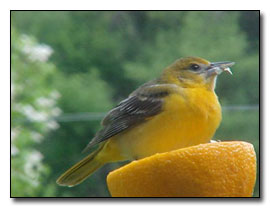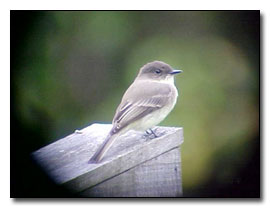|
Birding can be a very soothing and joy filled adventure. Hearing the beautiful songs and watching the
 various activities of these winged creatures can make you forget all your problems while in the field. Unless you live in an area that has all the species of birds, you will eventually have to travel around to find suitable places to find new bird species. State parks, coastal centers or beeches, even private lands can rack up many species for the ambitious birder. There are certain written and unwritten
rules that birders need to abide by while out there and here are a few of them:
various activities of these winged creatures can make you forget all your problems while in the field. Unless you live in an area that has all the species of birds, you will eventually have to travel around to find suitable places to find new bird species. State parks, coastal centers or beeches, even private lands can rack up many species for the ambitious birder. There are certain written and unwritten
rules that birders need to abide by while out there and here are a few of them:
1. Respect the rights of the private landowner. If you see "Posted" signs or "No Trespassing"
signs, do not enter unless you obtain permission from that landowner. Not only is there a stiff
fine for trespassing but dogs or a dose of rock salt may be waiting for you.
2. Whatever you bring into the area you are birding, make sure that it comes back out with you.
Sandwich wrappers, cigarette butts, beverage containers, etc., will not only make the area look
nasty, it is a direct hit on an already frail environment.
3. Before you go out birding try to let a friend or family member know where you will be. You
might be in a fairly popular birding spot but may still be alone. It's nice to know that
someone is aware, just in case.
4. The colder weather is upon us and there's nothing worse than going out birding and getting wet and cold. Sometimes it is unavoidable. Make sure you keep dry clothing like socks, a dry pair of
boots, gloves, or whatever you think will keep you comfortable. Keep these things in your
vehicle or maybe a fanny pack. It doesn't take too long to develop hypothermia when the temps
are below 60 degrees F.
5. Make sure that all your birding equipment is in working order. What a disaster it could be  if you have to go back to your vehicle for repairs or replacement equipment while your partner
photographs that rare one.
if you have to go back to your vehicle for repairs or replacement equipment while your partner
photographs that rare one.
6. Be aware of your surroundings. Black Bears and Coyotes are very much on the rebound throughout my
area and there are other dangerous creatures in your area. Most wild animals rarely interact
with humans, but please be aware of the possibilities.
7. This is a great hobby that allows children to participate. So, if you have children or
grand kids, take them with you on occasion. Remember, the future of our environment and the
survival of our precious wildlife species is going to be up to them.
8. By all means, have fun out there.
| 
